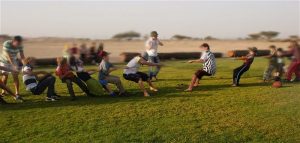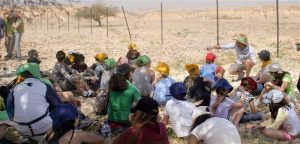 This summer Hamas published some videos from their youth camps in the Middle East. Only 100 kilometers from Jerusalem, they literally trained kids for battle. It was a very different kind of summer camp than people expect in the Western world. The boys were taught to jump through a burning wheel and to reload their little guns in a hurry, and to crawl with those guns through narrow, dusty alleys.
This summer Hamas published some videos from their youth camps in the Middle East. Only 100 kilometers from Jerusalem, they literally trained kids for battle. It was a very different kind of summer camp than people expect in the Western world. The boys were taught to jump through a burning wheel and to reload their little guns in a hurry, and to crawl with those guns through narrow, dusty alleys.
I wondered how Hamas motivates their next generation. Is it that the kids simply were not given another option? I felt sad after seeing those serious small faces, even though some of them seemed to be proud to be given such an “important role” by their most respected leaders.
My point is not about politics, but about being well prepared. How to prepare kids in general? Paul reminds us about knowing the plans of our enemy (2 Cor 2:11). And I am sure we know our enemy better than Hamas or ISIS, since the enemy is not some other nation or human being. The enemy is there even though we are tempted to ignore it or to give it a political name. But how much do we need to tell our young ones about spiritual warfare, or even the ongoing conflict?
Years ago I was at a Messianic congregation’s children’s camp in the Negev. One night all the kids were woken up in the middle of the night. “The enemy is here, everybody . . . wake up NOW!!!” one of the leaders shouted through the loudspeaker. In minutes everyone was fully awake. The scared kids were gathered in the dark yard. I was in shock. This is causing the kids trauma! I thought—but later I would change my mind completely.
Now awake, the scared campers were told that everything was actually fine, but they had an important lesson to learn. The whole episode was to remind them how the Jews felt on that historical Pesach night, when they had to escape quickly from Egypt. After that night the story became real. This became an eye opener for my Western mindset: When I was a child at camp, our preparation for Easter was to draw cute bunnies and colorful eggs. It had nothing to do with reality.
In the end, the campers also had lots of  joyful activities before going back to bed. The next morning, they had time to sleep in before Bible lessons. At the end of the camp, many kids rated that night as the best part of the whole week. The same tradition is still going on, and kids wait for that specific night more than anything else in the whole camp. Kids want to be safely prepared for something real.
joyful activities before going back to bed. The next morning, they had time to sleep in before Bible lessons. At the end of the camp, many kids rated that night as the best part of the whole week. The same tradition is still going on, and kids wait for that specific night more than anything else in the whole camp. Kids want to be safely prepared for something real.
Many Jewish feasts teach about being prepared spiritually. Rosh Hashanah, the first of the High Holy Days, is coming. Its biblical name is Yom Teruah—the Feast of Trumpets. The feast is not about the kind of trumpet played in a modern orchestra, but rather a shofar—an ancient musical instrument made of a ram’s horn, which is still used for Jewish religious purposes. In biblical times the blowing of the trumpets was understood to be a call to repent and prepare oneself to stand before God.
During my summer vacation in Finland, I visited some congregations and told them about Israel and Caspari Center. At one event I taught a hundred kids how to blow a shofar. Kids were queuing up for their turn to try. I remember their happy faces when they made a sound. Boys were excited to blow the very same kind of instrument that Jews played when the walls of Jericho were falling down. They had a chance to touch something very real, something that symbolizes big things spiritually.
I think believers need to prepare children for real life. Not, of course, with the tools of Hamas, but with much better equipment: a strong faith and prayer life. One congregation prepares their own special prayer journals for every child; another teaches their children to remember practical and powerful Bible verses and to use them in daily life. Kids are also encouraged to give witness to their non-believing peers despite the possible opposition or even isolation. It is about fearing God, not men, and trusting his love and power, not human wisdom.
Everything Caspari Center does also prepares believers for the future in some way. Sometimes it is in very practical things, sometimes it is by delving deeper into theological issues or history. All the work being done in the Messianic movement is preparing believers and equipping them with “real stuff”: the full armor of God and spiritual shofars tuned and ready!
Heidi Tohmola